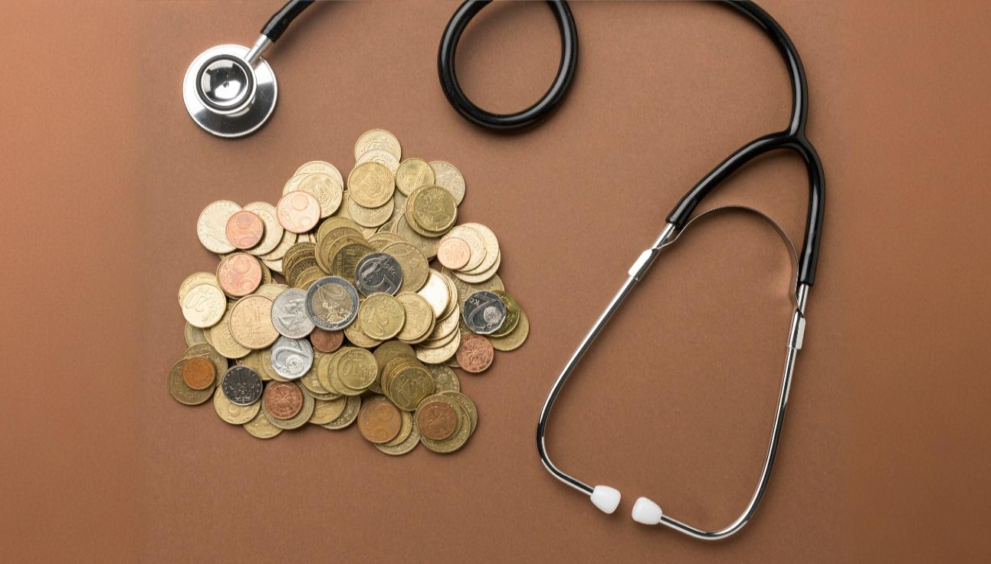Indian Finance Minister, Nirmala Sitharaman, presented the Union Budget 2025-26 on February 1, 2025, which featured a big push for the health sector. The budget allocated Rs 99,858.56 crore for health, which is almost 10 per cent more than what the government had allocated the previous financial year. Adding 75,000 new medical seats over the next five years, to introducing the ‘Heal in India’ initiative to promote medical tourism and the exemption of basic customs duty on 36 life-saving drugs used for treating cancer, rare diseases, and chronic conditions, were some of the highlights of this year’s budget.
Union Health Minister, JP Nadda, highlighted how this increased budget reinforced “In 2022- 23, government health expenditure in India is expected to be 2% of GDP.”
The Union Budget 2025-26 strengthens India's healthcare sector with an allocation of ₹99,858.56 crore, marking a 191% increase from ₹34,286 crore in 2014-15 and a 9.78% rise from ₹90,958.63 crore in 2024-25.
With a strong focus on expanding healthcare access, infrastructure,… pic.twitter.com/9aHHmpdJPu
— Jagat Prakash Nadda (@JPNadda) February 1, 2025
However, this increased spending may still not be enough. The National Health Policy of 2017 had recommended that government’s expenditure on health be 2.5 per cent of the GDP—Nadda’s estimate of health expenditure increasing to 2 per cent of GDP would still be short of this target.
Experts First Check spoke to also pointed to how the health allocations have been “stagnant” at around 2 per cent of total budget, and that the increase in the size of the budget was not in keeping with inflation rates.
Healthcare experts react on the Union Budget 2025-26
Dr Indranil Mukhopadhyay, Health Economist and Professor at OP Jindal Global University, Sonipat, said that the budget focuses on the middle class, particularly in Delhi, due to the upcoming Delhi Assembly elections. “This budget, being presented just before the elections, seems to cater to the middle class at the expense of the poor,” he said, adding that it does not address systemic public health issues.
“While the finance minister emphasises health as a priority, the allocation remains stagnant at around 2 per cent of total spending. When adjusted for inflation, the real increase in health expenditure is only 3 per cent—far from transformative changes,” he pointed out.
On the government’s claim of a 191% increase in healthcare funding since 2014-15, Indranil said that “once inflation and population growth are accounted for, the increase is negligible.”
“Like this, during the 10 years of the UPA government, the health budget increased by 212 per cent,” he explained.
In fact, he said that spending on health as a percentage of GDP has slid “from 0.38 per cent during COVID-19 to 0.29 per cent now.”
While noting a slight increase in research funding, he that it was still “inadequate.”
“Reducing GST on medical goods only benefits consumers if they see actual price reductions,” he added.
Dr Chandrakant Lahariya, a public health expert and policy strategist, described the budget as “lacking transformative measures.”
While he acknowledged the expansion of health insurance coverage for gig workers, he emphasized that “for the initiative to have a meaningful impact, it must extend to gig workers’ families, not just the workers themselves.” He added that many gig workers are already eligible for schemes like PM-JAY, so the real challenge lies in ensuring comprehensive coverage.
He however called the addition of 75,000 medical seats a positive step. “This addresses only one aspect—medical education—without tackling broader healthcare issues like infrastructure and personnel shortages,” he however, added.
On the exemption of customs duties on life-saving drugs, Dr Lahariya said that “while the exemption could help, its long-term benefits depend on effective implementation.”
Regarding healthcare funding, Dr Lahariya stresses that despite a 5-7% increase in the health budget, this would be “negligible” when adjusted for inflation.
He concluded that the budget “misses an opportunity for substantial healthcare reforms,” with India’s healthcare system still underfunded.
Dipa Sinha, Assistant Professor at the School of Liberal Studies, Ambedkar University Delhi (AUD), critiqued the healthcare budget, noting that the Rs 8,000 crore increase in funding “barely keeps up with inflation” and remains insufficient. She stressed that healthcare spending in India “continues to be inadequate,” failing to meet the policy commitment of allocating 2.5% of GDP to health. “Even with this increase, healthcare remains severely underfunded,” she explained.
Sinha points out that while PM-JAY coverage has expanded to individuals over 70, the funding increase does not translate into strengthening public healthcare, especially primary care. “The marginal ₹1,000 crore increase in the National Health Mission does little to address the country’s preventive healthcare needs,” she said.
She also noted the budget’s bias towards health insurance and large hospital investments. “There is a disproportionate focus on privatized care, neglecting the need for strengthening public health services,” she said.
Expectations for GST reductions on medical goods and better research funding were largely unmet, according to her. While acknowledging the increase in medical seats, she added that “critical personnel shortages, like nurses and paramedics, continue to be ignored.”
Also read: Does Ivermectin Harm Reproductive Health? Fact Check
(Do you have a health-related claim that you would like us to fact-check? Send it to us, and we will fact-check it for you! You can send it on WhatsApp at +91-9311223141, mail us at hello@firstcheck.in, or click here to submit it online)
















